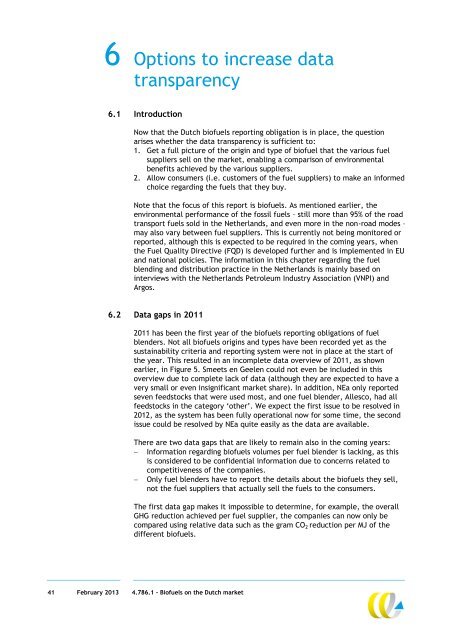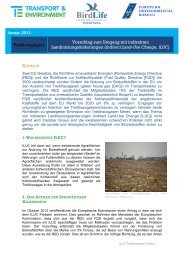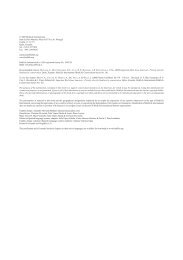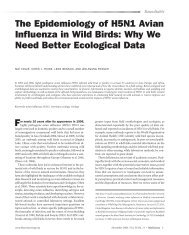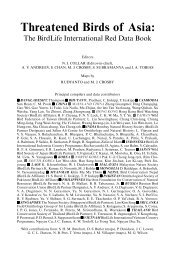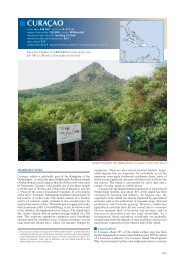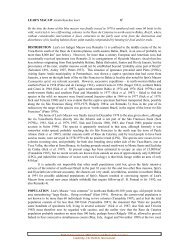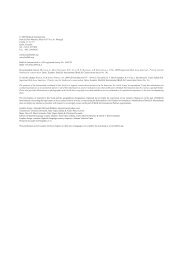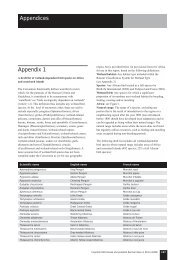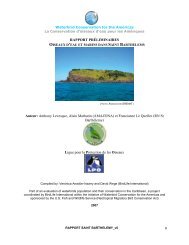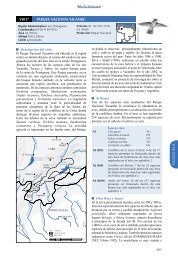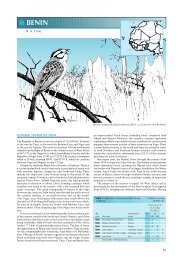Biofuels on the Dutch market - BirdLife International
Biofuels on the Dutch market - BirdLife International
Biofuels on the Dutch market - BirdLife International
You also want an ePaper? Increase the reach of your titles
YUMPU automatically turns print PDFs into web optimized ePapers that Google loves.
6 Opti<strong>on</strong>s to increase data<br />
transparency<br />
6.1 Introducti<strong>on</strong><br />
Now that <strong>the</strong> <strong>Dutch</strong> biofuels reporting obligati<strong>on</strong> is in place, <strong>the</strong> questi<strong>on</strong><br />
arises whe<strong>the</strong>r <strong>the</strong> data transparency is sufficient to:<br />
1. Get a full picture of <strong>the</strong> origin and type of biofuel that <strong>the</strong> various fuel<br />
suppliers sell <strong>on</strong> <strong>the</strong> <strong>market</strong>, enabling a comparis<strong>on</strong> of envir<strong>on</strong>mental<br />
benefits achieved by <strong>the</strong> various suppliers.<br />
2. Allow c<strong>on</strong>sumers (i.e. customers of <strong>the</strong> fuel suppliers) to make an informed<br />
choice regarding <strong>the</strong> fuels that <strong>the</strong>y buy.<br />
Note that <strong>the</strong> focus of this report is biofuels. As menti<strong>on</strong>ed earlier, <strong>the</strong><br />
envir<strong>on</strong>mental performance of <strong>the</strong> fossil fuels – still more than 95% of <strong>the</strong> road<br />
transport fuels sold in <strong>the</strong> Ne<strong>the</strong>rlands, and even more in <strong>the</strong> n<strong>on</strong>-road modes –<br />
may also vary between fuel suppliers. This is currently not being m<strong>on</strong>itored or<br />
reported, although this is expected to be required in <strong>the</strong> coming years, when<br />
<strong>the</strong> Fuel Quality Directive (FQD) is developed fur<strong>the</strong>r and is implemented in EU<br />
and nati<strong>on</strong>al policies. The informati<strong>on</strong> in this chapter regarding <strong>the</strong> fuel<br />
blending and distributi<strong>on</strong> practice in <strong>the</strong> Ne<strong>the</strong>rlands is mainly based <strong>on</strong><br />
interviews with <strong>the</strong> Ne<strong>the</strong>rlands Petroleum Industry Associati<strong>on</strong> (VNPI) and<br />
Argos.<br />
6.2 Data gaps in 2011<br />
2011 has been <strong>the</strong> first year of <strong>the</strong> biofuels reporting obligati<strong>on</strong>s of fuel<br />
blenders. Not all biofuels origins and types have been recorded yet as <strong>the</strong><br />
sustainability criteria and reporting system were not in place at <strong>the</strong> start of<br />
<strong>the</strong> year. This resulted in an incomplete data overview of 2011, as shown<br />
earlier, in Figure 5. Smeets en Geelen could not even be included in this<br />
overview due to complete lack of data (although <strong>the</strong>y are expected to have a<br />
very small or even insignificant <strong>market</strong> share). In additi<strong>on</strong>, NEa <strong>on</strong>ly reported<br />
seven feedstocks that were used most, and <strong>on</strong>e fuel blender, Allesco, had all<br />
feedstocks in <strong>the</strong> category ‘o<strong>the</strong>r’. We expect <strong>the</strong> first issue to be resolved in<br />
2012, as <strong>the</strong> system has been fully operati<strong>on</strong>al now for some time, <strong>the</strong> sec<strong>on</strong>d<br />
issue could be resolved by NEa quite easily as <strong>the</strong> data are available.<br />
There are two data gaps that are likely to remain also in <strong>the</strong> coming years:<br />
Informati<strong>on</strong> regarding biofuels volumes per fuel blender is lacking, as this<br />
is c<strong>on</strong>sidered to be c<strong>on</strong>fidential informati<strong>on</strong> due to c<strong>on</strong>cerns related to<br />
competitiveness of <strong>the</strong> companies.<br />
Only fuel blenders have to report <strong>the</strong> details about <strong>the</strong> biofuels <strong>the</strong>y sell,<br />
not <strong>the</strong> fuel suppliers that actually sell <strong>the</strong> fuels to <strong>the</strong> c<strong>on</strong>sumers.<br />
The first data gap makes it impossible to determine, for example, <strong>the</strong> overall<br />
GHG reducti<strong>on</strong> achieved per fuel supplier, <strong>the</strong> companies can now <strong>on</strong>ly be<br />
compared using relative data such as <strong>the</strong> gram CO 2 reducti<strong>on</strong> per MJ of <strong>the</strong><br />
different biofuels.<br />
41 February 2013 4.786.1 - <str<strong>on</strong>g>Biofuels</str<strong>on</strong>g> <strong>on</strong> <strong>the</strong> <strong>Dutch</strong> <strong>market</strong>


